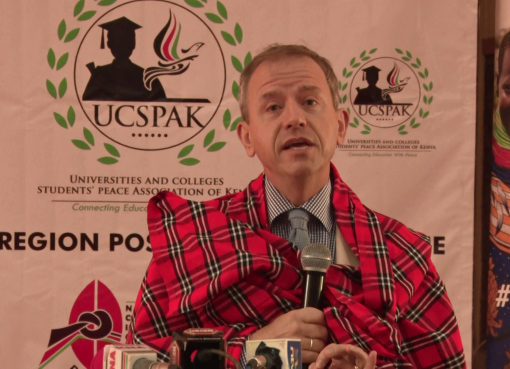Security officers in Nakuru County are closely monitoring the Kenya Primary School Education Assessment (KPSEA) Education and Kenya Certificate of Secondary Education (KCSE) examinations, which kicked off Tuesday morning, to curb any interference.
The state has further affirmed that it has crafted a multi-agency team to ensure that all systems are in place to guarantee the credibility of KCSE and KPSEA examinations.
Nakuru County Commissioner Mr. Loyford Kibaara said the exams had started in full gear and all preparations had been put in place to protect the integrity of the exams and avert cases of cheating during the tests.
All the managers at the 480 examination centres within the County, Mr. Kibaara said, have been sensitised on the need to uphold high standards of integrity to ensure that the process is not compromised.
The administrator, who spoke after touring several examination centres, added that the government has taken a multi-sectoral approach in the management of the exercise as all state departments were taking part in the process.
Mr. Kibaara, who said he would be making random visits to other examination centres in the county to check on the progress of the exams, warned that security officials were on high alert to deal with cases of interference and cheating.
He asked officers who are handling the examinations to follow the set guidelines in the administration of the tests and said he expected centre managers and security officers to relate well to ensure learners write their exams in a conducive environment.
Some 46,588 learners from all 11 sub-counties are scheduled to sit for their final Kenya Primary School Education Assessment (KPSEA), while 107,537 candidates will write their KCSE examination. The latter group includes 54,204 boys and 53,333 girls.
The County Commissioner affirmed that all exam personnel will be required to uphold high levels of accountability to safeguard the integrity of the papers as part of a campaign to prevent exam leaks and that no private vehicles will be allowed to ferry exam materials from the containers to the exam centres.
Mr. Kibaara said so far, they have not faced any challenges in terms of logistics and personnel.
He indicated that security agencies had mapped out all areas in the County and were working closely with sub-county education officers who are on the ground to ensure the success of the examinations.
“We have deployed enough security officers to the exam centres in all 11 sub-counties. We don’t expect any problem or any challenge during this exercise,” said Mr. Kibaara.
“Anybody who is not a candidate, centre manager, supervisor, security officer, or education officer is an outsider. Let us act firmly in the interest of our children. Anyone who breaches any aspect of examination will be apprehended,” he explained.
He assured candidates that enough transportation arrangements had been put in place to ensure examination papers, invigilators, supervisors, and security personnel reach all centres.
The County Commissioner warned, “We will arrest any individual possessing or purporting to have examination materials before scheduled time.”
The administration assured parents that the Ministry of Education had undertaken to ensure that no child missed the examinations due to failure of being registered, sickness, natural calamities, and pregnancies.
Mr. Kibaara put on notice centre managers, security personnel, and teachers who could be harbouring intentions of engaging in examination malpractices. “We have firmly instructed our officers to institute in-depth investigations in event malpractices are reported so that necessary action is taken against those who may have ulterior motives,” stated the County Commissioner.
Prior to the 8-4-4 system, which came to a close last year after candidates did their Kenya Certificate of Secondary Education (KCSE), there was the 7-4-2-3 curriculum consisting of seven years of primary education, four years of secondary education, two years of high school, and 3–5 years of university education.
He said security officials will be tasked with manning the containers and protecting students, teachers, and supervisors.
The first KCPE examinations were done in 1985, when it replaced the Certificate of Primary Examinations (CPE) examinations under the 7-4-6-3 curriculum.
The Competency Based Curriculum, popularly known as CBC, has now replaced the 8-4-4 system.
The integrity of these exams, Mr. Kibaara affirmed, must be upheld and jealously guarded, unlike in the past when exam cheating became the norm rather than the exception.
“Exam cheating allows students to proceed to the next level of education for which they are not well prepared. In the end, this gives the country graduates who barely understand their areas of specialisation,” he observed.
Unlike the 8-4-4 candidates who strove to score 100 per cent in the national tests, the KPSEA candidates will only seek to attain 40 per cent in the national tests.
The rest of the marks—60 percent—for the CBC learners will have been scored by teachers during school-based assessments administered at Grades 4, 5, 6, and 7.
By Anne Mwale





